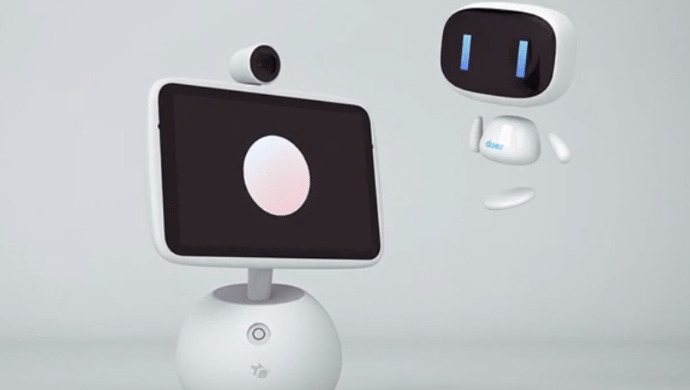And it has a more adorable name – Little Fish

Last year, US tech giants Amazon and Google made aggressive pushes to bring their conversational AI assistants into homes of ordinary folks.And it proved rather successful: Amazon Echo has sold over five million units since its launch in 2015, and while Google did not release sales figures, conversational user interface analytics company VoiceLabs said Google Home users grew by four times over the Christmas period last year.
Clearly, the demand is high. And it is easy to see why. These AI assistants are compact and offer a wide array of everyday functionalities – users can order an Uber, play an audiobook, check the weather, or shop online simply by issuing a voice command.
So it’s only a matter of time before Asia’s tech conglomerates make their play in this space. Earlier this month, A.I Nemo (Ainemo), a Chinese startup that specialises in smart robot companions, teamed up with web service giant Baidu to develop what is essentially its answer to the Amazon Echo or Google Home.
The voice-controlled family robot, Little Fish (Xiaoyu Zaijia), is powered by Baidu’s new AI assistant DuerOS. It is able to translate languages, check stock prices, look up locations, and read the news. However, its more noteworthy features are those that are not available on its rivals.
You see, unlike Amazon Echo or Google Home, Little Fish comes outfitted with an 8 inch IPS video screen with a 1280×800 resolution, and a 1080p webcam. This means users can stream video or conduct video chats. Apart from that, Little Fish can also make regular phone calls, book movie tickets, hotels, and even pay cellphone bills.
The DuerOS AI employs machine learning to learn more about the user over time. Interested parties can download a free app that will allow them to experiment with communicating with Little Fish.
Also Read: Baidu kicks off its US$3B fund for tech investment
There are four versions of Little Fish. The base version, which retails for RMB 1,699 (US$250) comes loaded with 1 gb of cloud storage, and an additional 10 gb for one year. But for the tier above it (which costs US$320), a 5,000 mAh battery power pack is offered, and it allows users to move the screen using a remote control.
Both versions allow for 100 minutes of talk time each year. Each additional minute costs RMB 0.20 (US$0.03).
“We believe family robots will be the next big category to join everybody’s home. The goal is to be useful and reliable, helping to solve real problems in people’s lives,” said Chenfeng Song, founder and CEO of Ainemo, in an official press release.
“Families, especially with kids and seniors, will now have the opportunity to connect with family members and manage their everyday lives by simply talking to a robot. Little Fish is the ultimate A.I. virtual assistant, offering users a level of control and communication like never before,” he added.
Little Fish responds to the call of “Xiaoyu, Xiaoyu” so it’s targetted for the Chinese market. It is not known whether when, if ever, it will be released for an English speaking audience. Perhaps this would be a good tool to practice Mandarin.
—
Image Credit: Ainemo
The post Meet Baidu’s answer to Amazon Echo and Google Home appeared first on e27.